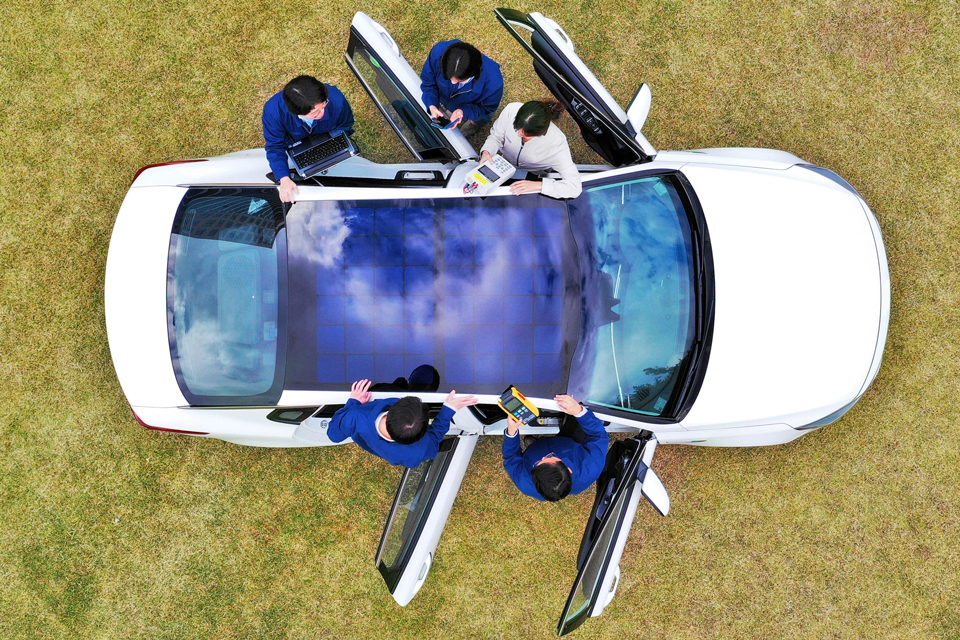Hyundai Motor and Kia Motors just announced they will be incorporating solar-charging technology on the roofs and hoods of some of its new vehicles. The solar panels will provide additional electrical power for hybrid, battery electric as well as internal combustion vehicles.
The system includes a solar panel, controller, and battery. When sunlight hits the panel’s surface, the solar energy is converted into electricity.
The aim of the system is to increase fuel efficiency and range. The technology will be used in conjunction with the vehicle’s main power source to boost mileage and reduce CO2 emissions, according to a press release.
“In the future, various types of electricity generating technologies, including the solar charging system, will be connected to vehicles. This will enable them to develop from a passive device that consumes energy to a solution that actively generates energy,” said Jeong-Gil Park, Executive Vice President of Engineering Design Division of Hyundai Motor Group., who developed the technology. “The paradigm of the vehicle owner will shift from that of a consumer to an energy prosumer.”
There will be three different types of solar roof charging systems—a silicon solar roof system (first generation), semi-transparent solar roof system (second generation), and a lightweight solar-lid for the vehicle’s body (third generation).
The silicon solar panels will be placed on the roofs of hybrid models. If weather conditions are good, the system will be able to charge 30 to 60 percent of the battery each day.
For the first time ever, cars with internal combustion engines will incorporate the semi-transparent solar roof system, allowing drivers to have “a sense of openness.” The panels will be affixed to a panoramic sunroof, allowing transparency while simultaneously charging an electric vehicle’s battery or an additional battery affixed on an internal combustion engine vehicle.
Hyundai notes that internal combustion engine vehicles with solar charging systems will boost the number of exports due to their adherence to environmental laws that regulate CO2 emissions.
A pilot study is currently underway to study the solar-lid system for eco-friendly vehicles. The technology involves mounting solar panels on the hood and roof together to generate the most amount of energy.
When creating the solar charging system, Hyundai Motor Group made sure to take both efficiency and design into consideration. The first generation is expected to be used in Hyundai and Kia vehicles after 2019.


